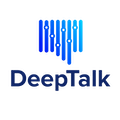Launching applications in record time without programming and without having to recruit scarce specialized personnel is one of the dreams of any IT leader. The agility and time-to-market demanded by the modern world transformed development into a difficult problem to solve. Fortunately, a new paradigm, its tools, and the massification of digital transformation are changing this scenario completely.
Towards 2021 and for years now, software developers have become one of the jobs with the highest demand. This is due, among other things, to the fact that the range of skills required from them is usually very wide and distant from each other [1]. The direct consequence is problems in hiring and retaining the development team, in addition to the high costs that this entails.
Low-Code/No-Code (LCNC) technologies are simplifying the creation of software through intuitive, visual interfaces that are compatible with a large number of APIs. This is allowing the IT department to free itself from the inconveniences in the development area, whether human resources or otherwise, to focus more on growing the business and the commercial area.
The term Low-Code was first used in 2014 by analysts at Forrester. The report published that year mentioned that Low-code platforms with a graphical interface and drag and drop elements would dramatically reduce the amount of hand-coding needed to launch a project. LCNC technology is derived from older RAD (Rapid Application Development) technologies, such as Lotus Notes or Microsoft Access, which also allowed non-IT teams to do some of the development, but still required in-depth knowledge.
In addition to requiring minimal hand-coding, LCNC tools are driven by agile development models, which makes them a fast option for software development, with high levels of productivity coupled with reduced costs in creating, deploying, and correcting applications. All these elements are considerably increasing the use of LCNC. Companies that adopt the use of these platforms have a team of users who are not trained as programmers, called citizen developers, who have played a key role in the digital success because they know perfectly the business functions and can create LCNC applications without having to write a single line of code.
According to Gartner, by 2021, the global market for these technologies will grow 23%, reaching $13.8 billion [2]. Today, there are platforms on the market that even connect, such as Asana, Airtable, Stripe, Twilio, ClickFunnels, Calendly, Google Forms, Gravity Forms, Hubspot, Typeform, and Facebook Pages.
Deep Learning without code
An example in the area of Artificial Intelligence, and specifically in Deep Learning and natural language processing is Deep Talk, this startup offers with just a few clicks, the ability to classify, categorize, and detect the most relevant topics that appear in the conversational data, generally extracted from customer service channels. It has Machine Learning models that allow classifying text from various sources such as surveys, chats, and even social networks. Its user-friendly platform guides the user step by step in loading the data and configuring the models without a single line of code. It has several hiring plans according to the number of conversations that need to be processed. Its graphical visualization is one of the most sophisticated in the market.
The success of the no-code movement
A recent survey [3] noted that LCNC platforms are succeeding because of their proposition about true digital transformation. For example, 47% of respondents indicated that they already use these platforms in their organizations while 20% of those who do not yet use them plan to adopt this technology in the next 12 months.
Most respondents indicated that they use LCNC to automate workflows, create new applications, speed development time, and automate data collection or reporting. Another application being given to the technology is simply to reduce the burden on developers so that they can focus their efforts on business-critical tasks.
The e-commerce sector has also seen great use of LCNC technologies. With few resources, an entrepreneur can quickly set up an online store. Not only SMEs have adopted this model, but also large brands started using LCNC last year, which has allowed them to shorten software development cycles.
Finally and interestingly, a McKinsey study [4] found that organizations that recognize and empower citizen developers score 33% higher on innovation scales than those that do not. The expansion of app development to departments outside of IT implies greater diversity of thinking and allows specific needs to be addressed with much more background knowledge, as only an insider could know them.
LCNC is used in collaborative, multidisciplinary teams: Process owners have the knowledge of Customer Experience and its expectations while the IT team can be involved in those developments to ensure security and compliance.
Although the use of LCNC platforms is not yet massive, it will not take long for it to become naturalized within all types of organizations due to the numerous benefits of this new paradigm that is here to stay.
References
[1]https://www.itmastersmag.com/noticias-analisis/los-ocho-empleos-it-con-mayor-demanda-para-2021
[3]https://www.techrepublic.com/article/survey-low-code-and-no-code-platform-usage-increases
